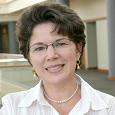Mary Pilotte, Purdue University – Engineering Education
 On Purdue University Week: Studying abroad can help broaden a student’s mind.
On Purdue University Week: Studying abroad can help broaden a student’s mind.
Mary Pilotte, associate professor of engineering practice at Purdue University, explores how problem-solving in a different culture can help students apply what they’ve learned to their studies.
Mary Pilotte received her B.S. in organizational leadership and supervision at Purdue in 1986, an MBA from the Goizueta School of Business, Emory University, Atlanta, Georgia, in 2001, and returned to Purdue for her Ph.D. in engineering education in 2013.
She has worked for more than 20 years in automotive, aerospace, airline, and commercial products industries, having held a variety of industrial leadership roles including manufacturing plant management, design-engineering management for new product and process development, and leadership of interdisciplinary integration teams for strategic mergers and acquisitions. She also has worked in the academic setting as managing director of the Dauch Center for Management of Manufacturing Enterprise and the Global Supply Chain Management Initiative for Krannert School of Management at Purdue.
Her research interests include industrial knowledge sharing and transfer, and the exploration of engineering work culture including generations-based engineering practices and norm.
Engineering Education
In the profession of engineering, it is intellectual curiosity that feeds the drive for investigation and exploration, to innovate and make things better for those that follow us in the world. Students enter college with this robust thirst for information, and as engineering educators, our role is to nurture and mirror that curiosity, as well as direct students in tools, practices and mindsets that will put their curiosity to work in productive ways. Engineering Education research has demonstrated that students who are actively engaged in their own learning retain information better and persist in achieving their academic goals. Providing students with settings that offer authentic professional contexts, experimentation, and creative design, encourages the development of productive habits for budding engineers – best practices such as close examination, thoughtful question-asking, and reflection. That’s why study abroad programs that embed and co-mingle technical, professional, and cultural elements are different from more typical tourist-oriented programs. Studies are demonstrating that the newer model of applied programs creates an amazing opportunity for students to practice the profession of engineering. Students that sign on for study abroad might begin by just having a simple curiosity about another country, but when they have to problem-solve around the many immediate differences they encounter, they begin to appreciate how engineering can help them manage uncommon, uncertain, unpredictable, or uncontrollable situations. While just traveling to another place may not in itself increase intercultural competence, our data suggests that what does work is deliberately stimulating student curiosity about the world around them and then providing opportunities for them to apply what they learn in class to a diverse range of problems affecting both local and global communities. This type of cross-cultural engineering fieldwork helps students to build skills, including curiosity, which are essential for their professional development and long-term career success.


